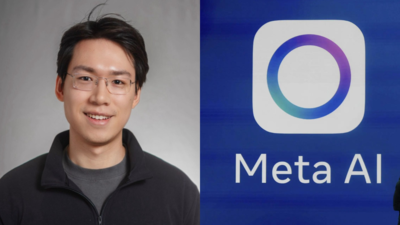AI Research
Medical Library Discovery Service 2.0

Combining AI-driven precision, an integrated knowledge hub, and actionable insights, a new AI discovery service by Ovid® is revolutionizing how healthcare and academic institutions manage research challenges. With tools designed to streamline workflows, enhance retrieval accuracy, and synthesize information, it ensures that institutions stay at the forefront of medical and academic advancements.
Understanding the challenges in research management
Healthcare and academic institutions operate as constantly evolving ecosystems powered by ongoing research and innovation. However, outdated tools and fragmented systems often hinder progress, leading to inefficiencies in critical workflows. Before implementing solutions, it is essential to fully comprehend the key challenges institutions face:
1. Siloed resources restrict innovation
Institutions often house thousands of vital resources — articles, guidelines, clinical tools — but these remain scattered across disconnected systems. Navigating this complex landscape is not only time-consuming but also limits the full potential of groundbreaking research.
2. Time constraints hamper impactful decision-making
Healthcare professionals and academic researchers alike face incredible pressure to deliver fast, precise outcomes. With traditional search systems requiring manual efforts to filter relevant data, precious time is wasted sifting through irrelevant or outdated resources.
3. Inefficient processes lead to missed opportunities
Fragmented research workflows create operational bottlenecks, delaying critical discoveries and increasing the risk of oversight in clinical and academic settings. Building more unified and efficient systems is essential to maximizing outcomes.
The Ovid Discovery AI solution
Ovid Discovery AI addresses these issues through a powerful combination of cutting-edge technology and user-centric design. By aligning directly with institutional needs, it transforms workflows into seamless processes, accelerates research, and empowers decision-makers with actionable insights.
1. Find what you need, fast
AI-powered search and contextual matching gets to the true meaning behind search queries, delivering relevant results and concise summaries, reducing irrelevant noise. Your AI Results Analysis Assistant also extracts study details and publication quality metrics so you can quickly assess evidence strength and make informed decisions with confidence.
AI biomedical semantic search & facets
Artificial intelligence transforms queries and content into semantic vectors — allowing the platform to return highly relevant results, even when different terminology is used. Users can refine their search with biomedical facets mapped to MeSH categories like diseases, drugs, and more.
AI contextual matching
Whether users search “impact of alcohol on depression” or “mental health effects of drinking,” Ovid Discovery AI surfaces the most meaningful research — not irrelevant noise.
AI generated summaries
Each result is accompanied by a reliable, AI-generated summary that synthesizes the most important takeaways and cites supporting sources — saving users time and guiding their next steps.
AI-powered search suggestions
Based on query context and user intent, the platform dynamically generates related search suggestions, guiding users toward deeper discovery.
AI Results Analysis Assistant
Support with assessing impact, methods, and outcomes at a glance. Suggested queries and main concepts guide deeper exploration, delivering the most relevant evidence with exceptional speed and accuracy.
2. Centralize all your resources
At the heart of Ovid Discovery AI is its centralized repository, which transforms fragmented institutional assets into an accessible, unified knowledge hub. Rather than navigating disparate systems, users can instantly access all licensed library resources alongside organizational best practices and proprietary documents.
This customizable repository removes traditional barriers to information access, enabling students, researchers, and clinicians to focus on leveraging knowledge rather than hunting for resources.
Plus, for organizations who have an Ovid® Synthesis subscription, users can Seamlessly send search results into new or existing projects in Ovid Synthesis directly from the Discovery interface. With a single click, users can begin analyzing and synthesizing the literature they just found — no downloads or separate systems required.
Then, finalized project summaries from Ovid Synthesis can be exported as PDFs and uploaded back into Ovid Discovery — making institutional evidence searchable, citable, and accessible to the broader organization or the public. Finally, administrators can view project activity, progress, and output in a standardized format, enabling more effective oversight across departments and initiatives.
3. Gain actionable library insights
Medical libraries can gather intelligence on resource usage and user behavior, enabling informed decision-making on content acquisition and library resource allocation, maximizing ROI. With the 360º Insights Dashboard and personalized reporting available, institutions can track resource usage, optimize content acquisition strategies, and identify emerging needs through data analytics embedded within the platform.
Unwavering support
A new standard for research excellence
Whether you are driving clinical excellence or conducting groundbreaking academic studies, Ovid Discovery AI is the ultimate tool for transforming your processes. From addressing outdated infrastructure to introducing streamlined workflows powered by AI, it sets a new benchmark for innovation and reliability.
The advanced search technologies, seamless centralized repository, integration across research platforms, and data-driven insights make it the definitive platform for institutions aiming to optimize outputs while minimizing inefficiencies. With this level of precision and efficiency, Ovid Discovery AI ensures users can access, analyze, and apply high-quality evidence to achieve results that matter.
At Wolters Kluwer Health, Customer Support is committed to your success. You’ll have a dedicated consultant and implementation team to ensure a quick and customizable setup process, which takes about two weeks. Additionally, Ovid Support is there for you throughout the entire service lifecycle, available 24/7/365.
AI Research
Artificial intelligence, rising tuition discussed by educational leaders at UMD

DULUTH, Minn. (Northern News Now) – A panel gathered at UMD’s Weber Music Hall Friday to discuss the future of higher education.
The conversation touched on heavy topics like artificial intelligence, rising tuition costs, and how to provide the best education possible for students.
Almost 100 people listened to conversations on the current climate of college campuses, including UMD Associate Dean of the Swenson College of Engineering and Science Erin Sheets.
“We’re in a unique and challenging time, with respect to the federal landscape and state landscape,” said Sheets.
The three panelists addressed current national changes, including rising tuition costs and budget cuts.
“That is going to be a structural shift we really are going to have to pay attention to, if we want to continue to commit for all students to have the opportunity to attend college,” said panelist and Managing Director of Waverly Foundation Lande Ajose.
Last year alone, the University of Minnesota system was hit with a 3% budget cut on top of a loss of $22 million in federal grants. This resulted in a 6.5% tuition increase for students.
Even with changing resources, the panel emphasized helping students prepare for the future, which they said includes the integration of AI.
“As students graduate, if they are not AI fluent, they are not competitive for jobs,” said panelist and University of Minnesota President Rebecca Cunningham.
Research shows that the use of AI in the workplace has doubled in the last two years to 40%.
While AI continues to grow every day, both students and faculty are learning to use it and integrate it into their curriculum.
“These are tools, they are not a substitute for a human being. You still need the critical thinking, you need the ethical guidelines, even more so,” said Sheets.
Following the panel, UMD hosted a campus-wide celebration to mark the inauguration of Chancellor Charles Nies.
Click here to download the Northern News Now app or our Northern News Now First Alert weather app.
Copyright 2025 Northern News Now. All rights reserved.
AI Research
AI startup CEO who has hired several Meta engineers says: Reason AI researchers are leaving Meta is, as founder Mark Zuckerberg said, “Biggest risk is not taking …”

Shawn Shen, co-founder and CEO of the AI startup Memories.ai, has stated that some researchers are leaving Facebook-parent Meta due to frequent company reorganisations and a desire to take on bigger risks. Shen, who left Meta himself last year, notes that constant changes in managers and goals can be frustrating for researchers, leading them to seek opportunities at other companies and startups. Shen’s startup, which builds AI to understand visual data, recently announced a plan to offer up to $2 million compensation packages to researchers from top tech companies. Memories.ai has already hired Chi-Hao Wu, a former Meta research scientist, as its chief AI officer. Shen also referenced a statement from Meta CEO Mark Zuckerberg who earlier said that the “the biggest risk is not taking any risks.”
What startup CEO Shen said about AI researchers leaving Meta
In an interview with Business Insider, Shen said: “Meta is constantly doing reorganizations. Your manager and your goals can change every few months. For some researchers, it can be really frustrating and feel like a waste of time. So yes, I think that’s a driver for people to leave Meta and join other companies, especially startups.There’s other reasons people might leave. I think the biggest one is what Mark (Zuckerberg) has said: ‘In an age that’s evolving so fast, the biggest risk is not taking any risks. So why not do that and potentially change the world as part of a trillion-dollar company?’We have already hired Eddy Wu, our Chief AI Officer who was my manager’s manager at Meta. He’s making a similar amount to what we’re offering the new people. He was on their generative AI team, which is now Meta Superintelligence Labs. And we are already talking to a few other people from MSL and some others from Google DeepMind.”
What Shen said about hiring Meta AI researchers for his startup
Shen noted that he’s offering AI researchers who are leaving Meta pay packages of $2 million to work with his startup. He said: “It’s because of the talent war that was started by Mark Zuckerberg. I used to work at Meta, and I speak with my former colleagues often about this. When I heard about their compensation packages, I was shocked — it’s really in the tens of millions range. But it shows that in this age, AI researchers who make the best models and stand at the frontier of technology are really worth this amount of money. We’re building an AI model that can see and remember just like humans. The things that we are working on are very niche. So we are looking for people who are really, really good at the whole field of understanding video data.”He even explained that his company is prioritising hires who are willing to take more equity than cash, allowing it to preserve its financial runway. These recruits will be treated as founding members rather than employees, with compensation split between cash and equity depending on the individual, Shen added.Over the next six months, the AI startup is planning to add three to five people, followed by another five to ten within a year, alongside efforts to raise additional funding. Shen believes that investing heavily in talent will strengthen, not hinder, future fundraising.
AI Research
AARP warns of “Grandparent Scams”

MONTGOMERY, Ala. (WSFA) – While artificial intelligence is rapidly transforming our world, a troubling trend shows scammers using it to steal from seniors, specifically grandparents.
You’ve probably heard the phrase ‘seeing is believing’ your whole life. But in an age of artificial intelligence, the turn of phrase doesn’t exactly stand the test of time. When it’s in the wrong hands, this new technology can make our senior citizens, who didn’t grow up in the digital age, a vulnerable population.
“One of the ways we see that being done is with what’s known as the grandparent scam,” Jamie Harding, AARP of Alabama Communications director, said. “The grandparent scam is basically, it usually happens late at night, they’re asleep, and someone calls them purporting to be their grandchild, they’re in trouble, they need money immediately.”
However, it isn’t actually their grandchild on the other end of the phone. Scammers have used AI technology to replicate the sound of their grandchild’s voice to try to take money.
“These are very sophisticated international crime rings, and they have access to a lot of very sophisticated technology,” Harding said.
To protect your family from these scams, Harding suggests having a code word that every member of your family knows so you can be sure it’s actually your loved one calling.
She also advises you not to answer phone calls from unknown numbers and to keep your personal information off the internet.
Not reading this story on the WSFA News App? Get news alerts FASTER and FREE in the Apple App Store and the Google Play Store!
Copyright 2025 WSFA. All rights reserved.
-

 Business1 week ago
Business1 week agoThe Guardian view on Trump and the Fed: independence is no substitute for accountability | Editorial
-
Tools & Platforms4 weeks ago
Building Trust in Military AI Starts with Opening the Black Box – War on the Rocks
-

 Ethics & Policy1 month ago
Ethics & Policy1 month agoSDAIA Supports Saudi Arabia’s Leadership in Shaping Global AI Ethics, Policy, and Research – وكالة الأنباء السعودية
-

 Events & Conferences4 months ago
Events & Conferences4 months agoJourney to 1000 models: Scaling Instagram’s recommendation system
-

 Jobs & Careers2 months ago
Jobs & Careers2 months agoMumbai-based Perplexity Alternative Has 60k+ Users Without Funding
-

 Education2 months ago
Education2 months agoVEX Robotics launches AI-powered classroom robotics system
-

 Podcasts & Talks2 months ago
Podcasts & Talks2 months agoHappy 4th of July! 🎆 Made with Veo 3 in Gemini
-

 Funding & Business2 months ago
Funding & Business2 months agoKayak and Expedia race to build AI travel agents that turn social posts into itineraries
-

 Education2 months ago
Education2 months agoMacron says UK and France have duty to tackle illegal migration ‘with humanity, solidarity and firmness’ – UK politics live | Politics
-

 Podcasts & Talks2 months ago
Podcasts & Talks2 months agoOpenAI 🤝 @teamganassi

